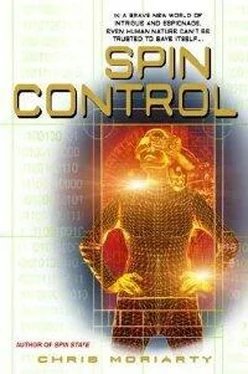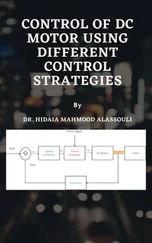“And have you?”
“I bare my soul to you and all you can do is make fun of me?”
“I’m not making fun of you! Really, I mean it. Have you found out?”
“No. But I will.” He gestured toward the door, and his voice dropped to a near whisper. “The answer’s right outside the airlock. All the answers. We just have to find eyes new enough to see Novalis with.”
“I know!” Arkady cried. “I feel the same way! I was thinking just this morning that Novalis is a kind of second chance. And not just for the Syndicates either. For earth sciences generally. Every time we’ve ever looked at data from pre-Evacuation Earth and wished we could go back, knowing what we know now, with the tools we have now… There’s a lifetime of work here. More than a lifetime.”
Arkasha poured himself another glass, threw back a quick swallow, then topped off Arkady’s glass. “So are you going to stick around to do it?” he asked.
“What do you mean?”
“Just that.”
“You mean stay here? Permanently?”
“Someone’ll have to.”
“But don’t you want to go home to Rostov?”
Arkasha shrugged.
“It’s home. Doesn’t that matter to you?”
Another shrug.
“But…weren’t you happy there?”
“No,” Arkasha said baldly.
“Why not?”
“Has it ever occurred to you, Arkady, that we might be getting a little too conformist in the Syndicates? We go to great lengths to maintain sufficient genetic diversity, of course. But what about diversity here?” He tapped his forehead. “Or here.” He tapped his chest, not quite in the anatomically correct position, but close enough so that they both knew what organ he was talking about.
“I don’t think—”
“Look at you, for example. Look at the misery you caught over your dissent paper.”
“That’s putting it strongly.”
“Is it? Didn’t you catch just enough grief over it that you stopped writing along those lines?”
“No! I just…backed off a little.”
Arkasha shrugged and began to turn away.
“I want to talk about it,” Arkady protested. “I just don’t necessarily agree with you.”
“Seriously?”
“Seriously.”
Arkasha sloshed the liquor around in his glass and took an experimental sip. “It’s gotten too warm, hasn’t it?” He got up without waiting for Arkady’s answer and deposited the beaker back in the lab’s sample refrigerator. It was a little alarming to think of what else was in there with it. But if it had come out of the Aurelias’ fridge, then Arkady supposed it had seen worse.
“Tell me,” Arkasha said when he returned to his perch. “Have you ever read the Bible?”
Arkady’s surprise and dismay must have shown in his face, because Arkasha laughed and quickly said, “Oh no. I’m not one of them . I was just thinking of the verses in Leviticus about the scapegoat.”
“I’m sorry. I’m not familiar with goats. What’s the Latin species name?”
Arkasha laughed. “It’s a metaphor, not a species. On Yom Kippur, the Day of Atonement, the ancient Israelites used to put all the sins of the people on the head of a goat and cast it out into the desert. ‘ And the goat shall bear away all their iniquities to an uninhabited land .’”
“I’m afraid I don’t see your point,” Arkady said, all too aware of how pompous he sounded.
“Don’t you? Instead of the desert we have euth wards. And instead of Yom Kippur we have culling and critique sessions.”
“That’s ridiculous, Arkasha! Renorming centers are for rehabilitation, not punishment. And even the people who can’t be reintegrated into their home crèches can lead happy, productive lives from the wards.”
“Oh, yeah? Name one person who’s done it.”
“Rumi.”
“Rumi, indeed. I was wondering when we were going to get to him. Brilliant, isn’t it? Let one dead dissident become a famous poet and you can wave his poems in the face of all the live dissidents to prove that they’re imagining things. Of course Rumi had to kill himself before he could be rehabilitated. But we only want to remember the feel-good part of the story. ‘I’m the echo of your echo, the shadow of your shadow’s shadow ,’” Arkasha quoted, twisting Rumi’s famous lines to extract a disconcerting new meaning from them. “‘ And let’s face it, brother, a man needs a shadow .’”
The poet’s words hung in the air between them, a ghostly reminder of the great man’s unrequited and ultimately fatal passion.
“It’s a love poem,” Arkady protested weakly, “not a political tract.”
“Is there a difference?”
Arkady felt hot and restless. He stood up, his back protesting its long stint on the hard lab stool; but there was nowhere else to go in the suddenly cramped space of the lab, so he sat back down again.
“If you want to talk about love,” Arkasha said, “let’s talk about the six percent rule. Or don’t you know what it is?”
Of course Arkady knew. Everyone knew. The six percent rule had dogged Syndicate genetic designers since the moment the first cohort reached sexual maturity. It turned out, after all the millennia of debate and argument and condemnation, that you could sociogenetically engineer humans for either heterosexuality or homosexuality. It was child’s play. An idiot could do it. Except that neither the most brilliant genetic engineering nor the most repressive social systems could do it to everybody. No matter how careful or ruthless you were, about six percent of the population broke the other way out of the starting gate. And the percentage was the same regardless of whether you were trying to promote God-given heterosexuality or laboratory-manufactured homosexuality.
“Well, what if the six percent rule is like your ants?” Arkasha went on. “What was it you said in your dissent paper? That following behaviors are only adaptive as long as Russell’s prerequisite for inductive reasoning applies: as long as future futures continue to resemble past futures. But dissent is the swarm’s way of keeping alternative solutions on hand: hedging its bets just in case future futures break the rules learned from past futures.”
“Okay,” Arkady admitted. “I guess I said that.”
“So generalize. What if there’s a dissent instinct in all social animals, humans as well as ants? What if dissent—deviance, abnormality, protest, whatever you want to call it when some people in a society refuse to follow the crowd—is really the species trying to maintain enough diversity, mental as well as physical, to deal with unexpected bumps in the road? Has it ever occurred to you that we might be normalizing ourselves onto a fitness peak we’re not going to be able to climb back down from if our future futures turn out to be too different from our past futures?”
“First of all,” Arkady said after a stunned pause, “my dissent paper didn’t even remotely say that. And, second, how can you possibly compare political dissent, which, yes, I admit there might be a place for, with…well, deviance ?”
Arkasha jumped up off his lab bench and started straightening already obsessively straight papers. “I have to get back to work, Arkady. It’s been nice talking to you. Let’s do it again next week.”
“Arkasha!”
“What?”
“Nothing. I just…” He floundered, unable to bring himself to speak the unspeakable. “I want…”
Arkasha sighed. “What do you want from me, Arkady?”
“I want…I like you, dammit! As a person. We should be friends, but every time it seems like we’re about to be, you…Oh for God’s sake, will you put your stupid notes away and sit down ?”
Читать дальше












